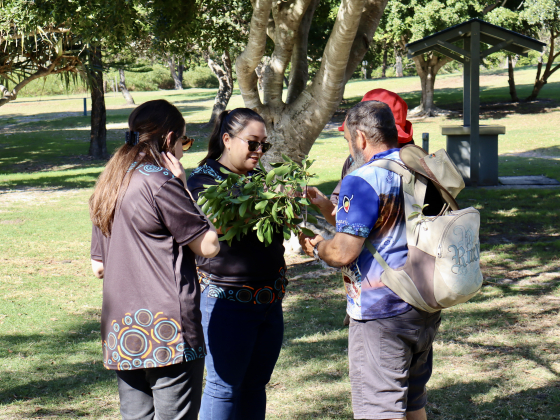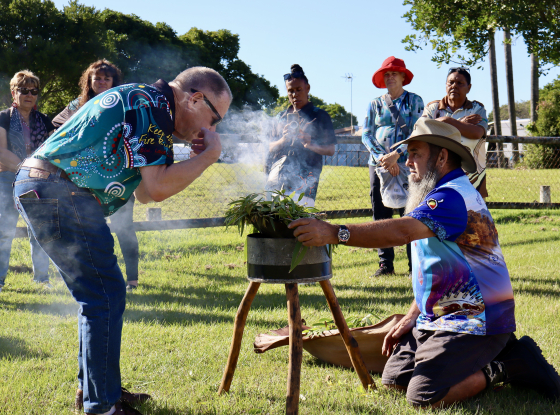Taking teachers out of the classroom and onto Country is building connections and confidence to imbed cultural knowledges in the classroom, according new CNS research.
The Culturally Nourishing Schooling project engages teachers, school leaders, Cultural Mentors and community members through a range of strategies designed to instil confidence in teachers and improve educational engagement of Aboriginal students.
“This holistic, community-wide approach to education is enabling our CNS schools to boost local connections, build trust between teachers and students, and increase cultural understanding,” says Lead Investigator on the CNS project, Associate Professor Kevin Lowe, Scientia Indigenous Fellow at the School of Education, University of New South Wales.



